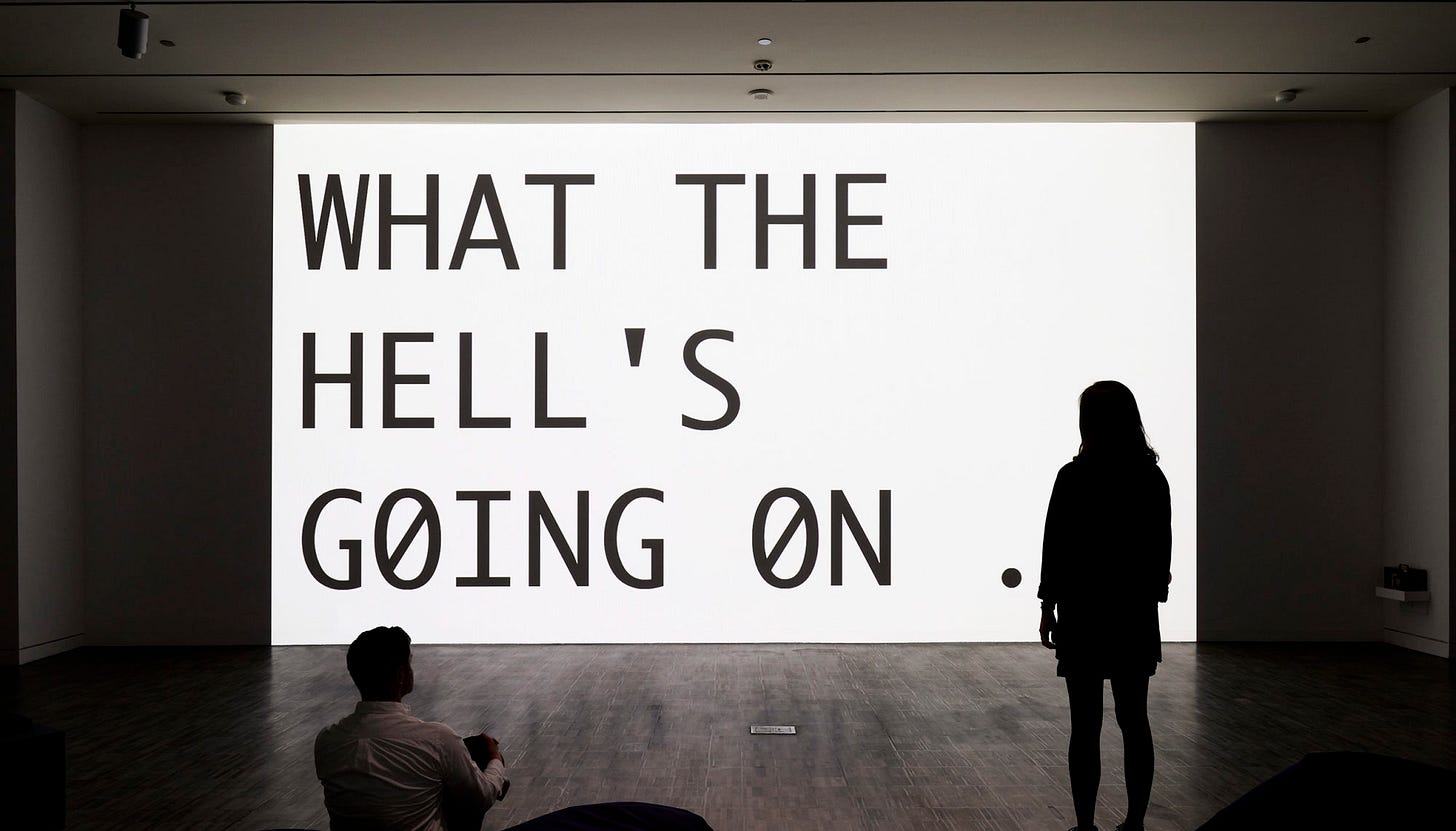H̲u̲m̲a̲n̲ ̲A̲f̲t̲e̲r̲ ̲A̲l̲l̲
YHCHI & human machine Flash terror.
When you write words now, do it as inauthentically as possible.
That's the trick.
Communicate, but in your choice of words, your tone, the tenor of your voice, let there be no truth to it.
It's fun to break the rules — why reveal, why be honest, why be authentic, why rattle your own soul?
Be flat, be fake. Make it hard for them to tell who you are, if you're even real.
After all... they're just words.
Twenty years ago, Young-Hae Chang Heavy Industries crafted text that could have been auto-generated by a machine.
Despite the cyberpunk name, these are two human artists, mysterious ones, the Daft Punk of Flash... there's a little Weyland-Yutani or whatever to the name — and with their work displayed on huge screens, black and white Monaco, many languages, there's a certain corporate terror to it. Using cues from propaganda, advertising, video games, they tell utterly human narratives — an airport security search, a utopian Israeli-Palestinian colony on Mars.
There's a beautiful tension between the humanity of the stories, its weird poetry, and the formal elements of control: precision-timed text, the jazz music, the formal hypnotic control as you are forced to read at the artists' dictated pace.
Net artists in the 90s faced challenges similar to those facing the emergence of synthetic art; huge potential in their powers of creation, no playbook, no guiderails, no fixed form — and so YCHI used the bare minimum that technology would allow, simple text that would flow even on an old-school 56k modem.
Their work now feels prescient.
Human as machine. Low information for a low-attention-span diet, all riddled through with the optimism and paranoia of the late 90s. It's funny; people now look back on those days with nostalgia.
In the future, how will we look back on today?




